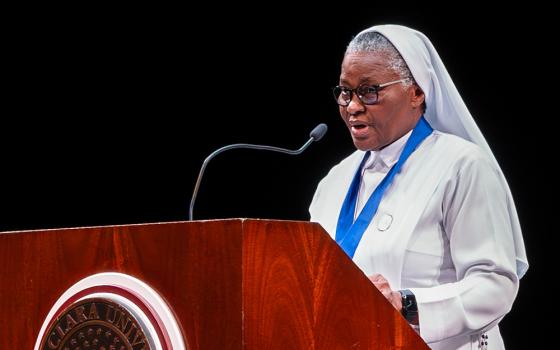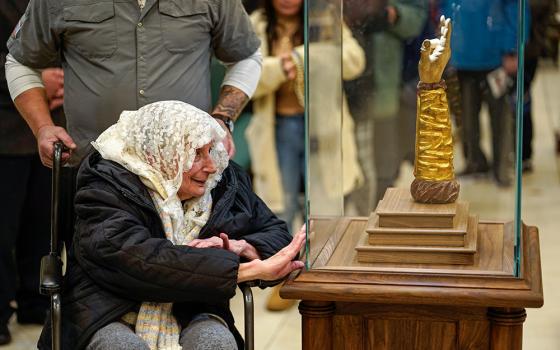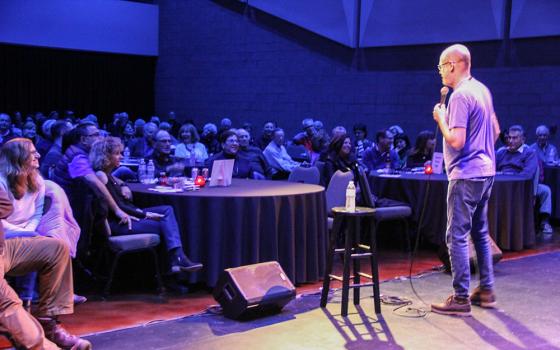The televised reality show "The Biggest Loser" is pretty much what its title claims. Obese people sign up to spend weeks at diet and exercise boot camp, competing to see who loses the most weight. The "biggest loser" wins money and fame. The objective of the program -- now with clones in 26 countries -- may be to promote health. Its unintended consequences among its viewing public, some of whom may follow its routines without supervision, can include anorexia, bulimia and malnutrition.
You can understand the program's appeal. Big winners win cash -- in the U.S., a quarter of a million dollars -- at the end of the season. The winners often do look great after their spell at "the ranch," although one of this year's U.S. winners lost nearly 60 percent of her body weight, shocking even the judges at her unveiling.
There is something very wrong here. It's OK to promote healthy eating and exercise, and the program warns of the need for medical supervision. But some people take things too far. You really can be too thin. On purpose.
Of course, there are many, many people in the world who need to lose weight. They form a huge cadre of medical crises waiting to happen. According to the Overseas Development Institute, a British think tank, one third of the world, half in developing countries, is either overweight or obese. The experts blame too much fat, sugar and animal products in daily diets, all leading to diabetes, heart disease, and a host of other issues.
Then there are the 900 million or so in developing countries who suffer hunger. Nine hundred million human persons do not have enough food to survive. The many results of their malnutrition include blindness, underdevelopment and death. Did I mention that starving people in Syria have been eating grass?
And all the numbers are connected. Almost half the world has food issues, and the fat-thin border gets crossed in dangerous ways. Obese people are at the same risk for malnutrition as those starving at the edges of society. The question is more than simply quantities of food. The question is about nutrition.
When personal food consumption is either abusive or nonexistent -- one or the other is the case for nearly half of humanity -- the world community needs to sit up straight and even things up a bit.
Many years ago, Sir Arthur Lewis, a Princeton professor and holder of the Nobel Prize in economics, told me the world produced enough food -- real food -- to nourish its populace. The problem, he explained, was a question of supply and demand, of delivery and receipt. In short, the world did not need to produce more food, only get it to where it was needed.
That is more complex than the simple delivery system from plate to mouth. Whether to Syria, South Sudan, the Philippines or the Central African Republic, global food aid sometimes gets where it is supposed to. Sometimes it does not.
Hunger is perhaps our most basic need, and its urgency requires it be tended. If that urgency is denied repeatedly and routinely, starvation sets in. Name a country, any county. People are hungry there, now.
But across large swaths of the planet, many people can sate just about any hunger or desire without thought of consequences. Many people in the developed world can abusively fill themselves with some sort of comfort -- with heat, light, information, exercise, sleep, food, drink, sex or power. Some fill self-created hungers for one or another of these -- often but not always food -- until they are caught in an unending cycle that goes beyond obesity or its opposite and ultimately denies their own humanity. They are either too fat or too thin, or worse.
The media-induced search for comfort often begins and ends at the dinner table. That dinner table is not available to nearly 1 billion people.
Think about it next time you fill your plate.
[Phyllis Zagano is senior research associate-in-residence at Hofstra University and winner of the 2014 Isaac Hecker Award for Social Justice. Her newest books are Mysticism and the Spiritual Quest: A Crosscultural Anthology and Ordination of Women to the Diaconate in the Eastern Churches. She will speak March 13 at Rockhurst University in Kansas City, Mo., and May 6 at St. Francis Xavier Church in New York City.]
Editor's note: We can send you an email alert every time Phyllis Zagano's column, Just Catholic, is posted. Go to this page and follow directions: Email alert sign-up.




